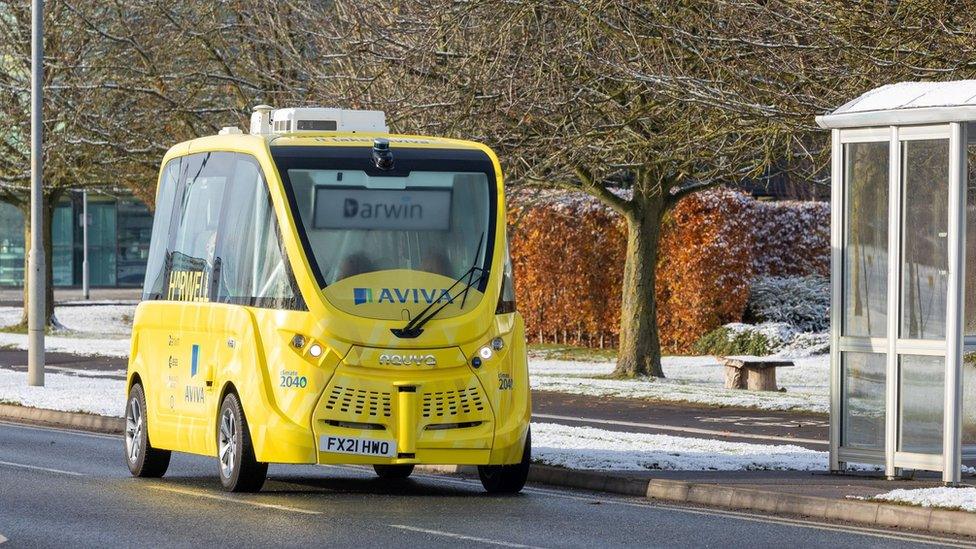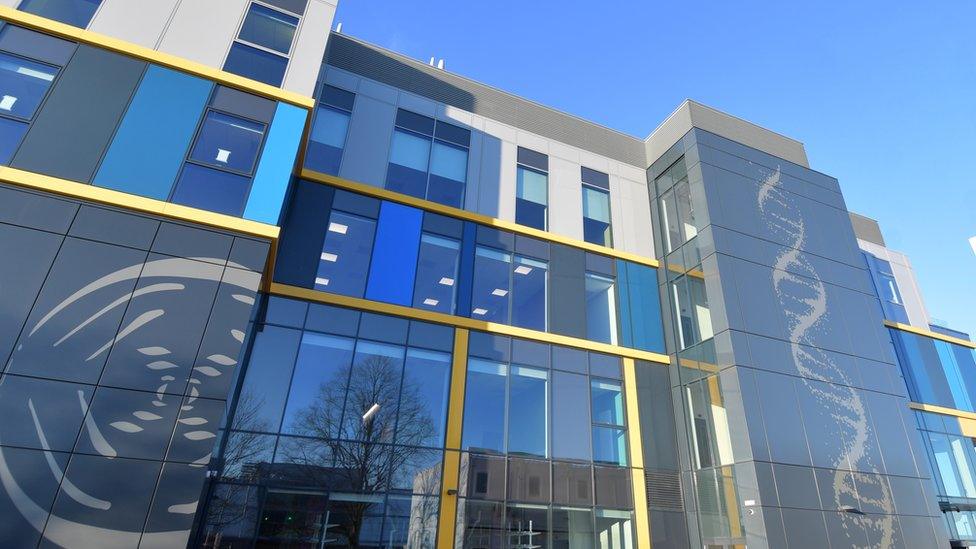Driverless passenger shuttle trial begins at Oxfordshire's Harwell Campus
- Published

The shuttle started to transport people around the Harwell Campus from Monday
A trial of a driverless passenger shuttle service that uses sensors and cameras has started.
The shuttle began transporting passengers around Oxfordshire's Harwell Science and Innovation Campus on Monday.
It has no steering wheel but does have safety controls, which are managed by an on-board operator.
The service is being trialled by the Darwin Innovation Group, external, with help from the European and UK space agencies.
The UK Space Agency said the use of satellite communications in positioning the shuttle during the trial was "significant".
Allow X content?
This article contains content provided by X. We ask for your permission before anything is loaded, as they may be using cookies and other technologies. You may want to read X’s cookie policy, external and privacy policy, external before accepting. To view this content choose ‘accept and continue’.
Previously, other self-driving vehicles have been reliant on terrestrial Wi-Fi to stay connected.
But by making use of satellites in addition to 4G and 5G, the vehicles can still operate in rural or remote areas, which might not have complete terrestrial coverage.
Science minister George Freeman said: "By unlocking the power of space and satellite technology, these new shuttles can stay connected all the time."
The battery-powered shuttle, which was built by Navya, emits zero carbon dioxide and is free to ride for passengers across the campus.
Similar shuttles have been used in Switzerland and have safely transported tens of thousands of passengers.
Daniela Petrovic, delivery director at Darwin, said: "Self-driving cars are no longer theoretical, and we believe that trials can help move the UK towards greener, more efficient and more accessible modes of transport."

Follow BBC South on Facebook, external, Twitter, external, or Instagram, external. Send your story ideas to south.newsonline@bbc.co.uk, external.
Related topics
- Published30 September 2021
